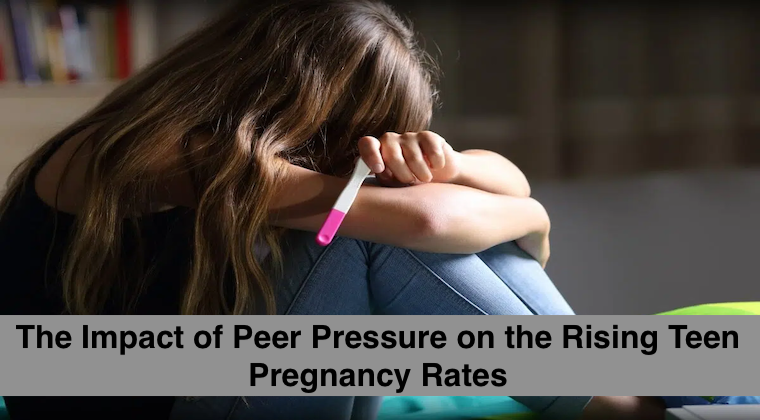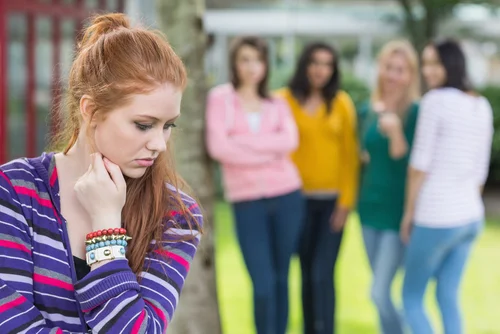+1 845 259 2974 (11 a.m to 7 p.m CST)
The Impact of Peer Pressure on the Rising Teen Pregnancy Rates

Teen pregnancy has been a significant public health concern for many years, and recent studies indicate that the rates are rising again in some areas. Several factors contribute to this trend, but one of the most impactful is peer pressure. Peer pressure plays a central role in shaping the behaviors and decisions of teenagers, particularly when it comes to relationships and sexual activity.
Adolescents are in a crucial phase of life where they seek social acceptance and often feel the need to fit in with their peers. Unfortunately, this can sometimes lead to risky behaviors, including early sexual activity, which increases the likelihood of teen pregnancy. Understanding how peer pressure influences teenagers and taking proactive steps, such as using parental control tools and providing proper education, can help combat this growing issue.
Understanding Peer Pressure in Adolescence
Peer pressure refers to the influence that individuals in the same age group exert on each other, particularly in encouraging certain behaviors or decisions. For teenagers, peer pressure is a powerful force because they are at a stage of life where fitting in and gaining approval from their peers is often a top priority.
During adolescence, teens undergo significant physical, emotional, and social changes. They begin to form their identities and seek belonging in various social groups. As a result, they can be easily influenced by their friends or social circles, especially when it comes to behaviors that are considered "cool" or socially acceptable. This may include experimenting with alcohol, drugs, or sexual activity, even if they are not fully prepared for the consequences.
Link Between Peer Pressure and Risky Sexual Behavior
Peer pressure often pushes teenagers to engage in risky behaviors, including early sexual activity, even when they might not be emotionally or physically ready. In some social circles, being sexually active is seen as a sign of maturity or popularity. This creates a situation where teens might feel pressured to have sex in order to be accepted by their friends.
Research shows that teens who feel pressured by their peers are more likely to engage in unsafe sexual practices, such as not using contraception, which directly increases the risk of teen pregnancy. Additionally, gender dynamics play a role, with boys often feeling pressure to be sexually active to prove their masculinity, while girls may feel pressure to maintain relationships through sexual activity.
Consequences of Teen Pregnancy
The consequences of teen pregnancy are significant and long-lasting, affecting not only the teen mother but also the child and the broader society. Teen parents often face many challenges, including:
- Educational setbacks: Many teen mothers drop out of school to care for their baby, reducing their chances of pursuing higher education or obtaining stable employment.
- Economic struggles: Without proper education, teen parents often find it difficult to secure well-paying jobs, leading to financial hardships.
- Health risks: Teen pregnancies are associated with higher risks of medical complications for both the mother and the baby, including premature birth and low birth weight.
- Emotional and psychological effects: Teen mothers may experience higher levels of stress, depression, and anxiety, especially if the pregnancy was not planned and if they lack strong support systems.
These consequences underscore the importance of addressing the role of peer pressure in teen pregnancy, as preventing these pregnancies can help teens avoid these life-altering challenges.
Interventions to Address Peer Pressure and Teen Pregnancy
Combating the rise in teen pregnancy requires a multifaceted approach. Here are some strategies that can help reduce the impact of peer pressure and prevent unintended pregnancies:
- Comprehensive sex education: Schools and communities should offer sex education programs that go beyond basic biology and discuss the emotional, social, and relational aspects of sex. Teaching teens about contraception, consent, and healthy relationships can empower them to make informed decisions.
- Parental involvement: Parents play a crucial role in guiding their teens through this stage of life. Open communication about sex, relationships, and peer pressure can help teens feel supported and less likely to give in to risky behaviors. Using parental control apps, parents can stay aware of their teen's online activities and help them avoid harmful influences.
- Mentorship programs: Community-based programs that connect teens with mentors can provide positive role models and alternative sources of guidance. These mentors can help teens develop confidence and resist negative peer pressure.
- Building self-esteem: Encouraging teens to build their self-worth and confidence can reduce their need to seek validation from peers. Teens who feel good about themselves are more likely to make decisions that align with their values, rather than simply trying to fit in.
The rise in teen pregnancy is closely linked to peer pressure, a powerful force in shaping adolescent behavior. Teens, driven by the need to fit in and be accepted, may engage in risky sexual activities without fully understanding the consequences. Social media amplifies this pressure, making it even more challenging for teens to navigate. However, through education, parental involvement, and the use of tools like parental control apps, we can help teens make more informed decisions and reduce the likelihood of unintended pregnancies.





















